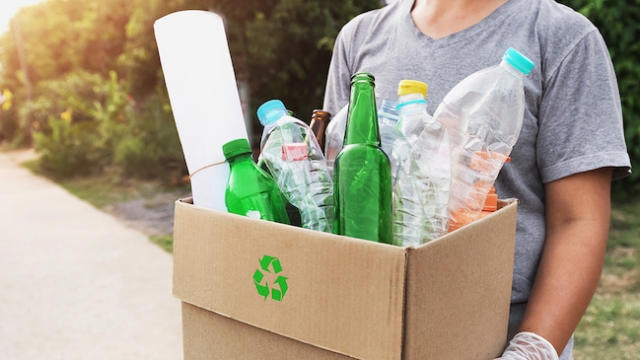Business
New law enforces polluter-pays principle
The Environmental Protection Law 2020 introduces a new perspective on solid waste management as polluter-pays principle, reflected in policy instruments such as extended producer responsibility (EPR), waste charge by volume.
Article 79 of the Law on Environmental Protection 2020 stipulates costs of collection, transport and treatment of domestic solid waste, with the charges shall be calculated in accordance with regulations of law on prices. It also vary by quantity or volume of the classified waste.
In particular, if solid waste are reusable and recyclable and hazardous waste is classified, households and individuals are not required to pay charges for collection, transport and treatment services.
Lyli Baum Pollans, an expert in urban planning and policy, commented that the "polluter pay" concept is one of the most effective instruments for the government to not only reduce solid waste but also control the cost of waste treatment.
Specifically, when asked to pay the cost of waste treatment in proportion to the volume discharged, people will tend to recycle, reuse or compost instead of disposing. As stated in the provisions of the current environmental protection law, only waste with no recycling value is required to pay a collection fee.
Pollans gave an example in Massachusetts, after one year of implementing the collection of waste fees by volume, the amount of waste discharged into the environment decreased by an average of 30 per cent per household.
In fact, the total consumption of products in that year did not decrease, meaning the amount of waste generated also did not decrease. Consumers have kept waste longer in the value chain and continued to generate benefits instead of disposing it into the environment.
According to Hoang Duc Vuong, chairman of the Recycled Plastics Association, the polluter-pays-principle mechanism is a mandatory requirement for waste management to operate in consonace with the market structure.
For example, in Japan, each citizen has to pay an amount of about $100 per month, called the resident tax, which is used to pay for all the surrounding infrastructure such as cleaning up trash, wastewater treatment.
A representative of the recycling industry estimated that if each Vietnamese person is required to pay about ten per cent of the above amount, which is about VND200,000 per month, we will have enough funds to build a modern system.
However, before it was put into use, the cost of environmental treatment per person was only a several ten of thousands of dong per year. This number is too small to "require the environment to be clean, the garbage to be treated".
The polluter-pays mechanism is also the spirit of the Extended Producer Responsibility (EPR) instrument. Here, “polluter” is understood more broadly, not only as a discharger, but as all parties contributing to the discharge process.
In particular, manufacturing enterprises (manufacturers, importers) are placed in charge because this group of businesses plays the central role in the supply chain, creating an impact on all stages, from ideas, design, material selection to retail, consumption and disposal.
Deploying waste management from the point of view of "polluters pay" with consumers is an important prerequisite for businesses to implement EPR as well as practice circular economy.
In Accordance with Fausto Tazzi, vice president of Vietnam Packaging Recycling Organization (PRO Vietnam), the leading challenge for this organization's activities is the lack of resources. Thus, attracting consumers to participate in sorting, collection, recycling and reuse will be a great support for PRO Vietnam to fulfill its goal of 100 per cent packaging recycling by 2030.
Inefficient plastics recycling costs Vietnam up to $3 billion each year
Menas Group opens dual flagship retail outlets near Tan Son Nhat airport
Menas Group today inaugurated two new flagship retail destinations: the Mena cosmetics and perfumes pop-up store and TWG Tea, both located on the first floor of Menas Mall Saigon Airport.
Maersk rolls out electric trucks for inland transport in Vietnam
A.P. Moller–Maersk will deploy a fleet of heavy-duty electric trucks for inland container transport in Vietnam starting in the first quarter of 2026.
Grab and Charge+ partner to develop electric vehicle charging network in Vietnam
The partnership aims to expand the system of charging and battery swapping stations, providing Grab driver-partners and other EV users with easy access to flexible and reliable charging solutions.
Samsung Vietnam appoints its first Vietnamese senior executive
Samsung Vietnam appoints Nguyen Hoang Giang to SEVT senior leadership, the first Vietnamese executive in the company’s local manufacturing units.
Michelin leads the smart mobility revolution with data and AI
Michelin is undergoing a strong transformation by applying AI and smart analytic, helping lead the smart, safe, and sustainable mobility revolution in the Industry 4.0 era.
LG Innotek secures $200 million IFC loan following revenue drop
LG Innotek Vietnam Hai Phong secured a $200 million IFC loan as revenue slows, aiming to expand camera module production while meeting sustainability targets.










































